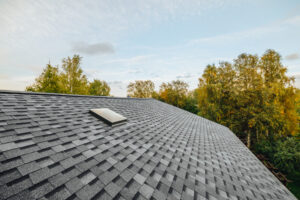When most homeowners think about improving energy efficiency, they often focus on windows, doors, and insulation. However, one of the most significant contributors to your home’s energy efficiency is its siding. High-quality siding does more than just enhance curb appeal—it acts as a protective barrier against the elements, helping to regulate indoor temperatures and lower energy bills. Here’s how siding impacts your home’s energy performance and how the right materials can make a big difference.

Siding Acts as a Thermal Barrier
One of the main ways siding improves energy efficiency is by acting as a thermal barrier. Siding helps protect your home from external temperature changes by preventing the transfer of heat. During hot summers, energy-efficient siding keeps heat from entering your home, reducing the need for air conditioning. In the winter, it helps trap heat inside, keeping your home warm and lowering heating costs. By reducing the amount of energy needed to maintain a comfortable indoor temperature, insulated siding can significantly reduce utility bills over time.
Prevents Air Leaks and Drafts
Siding also plays a crucial role in sealing your home from air leaks and drafts. Poor-quality or damaged siding can allow cold air to seep into your home during the winter, or let cool, conditioned air escape during the summer. These drafts force your HVAC system to work harder to maintain a consistent temperature, leading to higher energy consumption. Modern siding materials, especially when professionally installed, create a tighter seal around your home’s exterior.
Reflects Sunlight with Advanced Technology
Many modern siding products are designed with advanced technology to reflect sunlight rather than absorb it. This reflective property helps reduce the amount of heat that penetrates your home’s exterior during hot weather. Siding materials like vinyl and fiber cement often come with finishes that reflect harmful UV rays, which not only helps keep your home cooler but also prevents the siding from fading over time.
Durability and Low Maintenance Contribute to Long-Term Savings
The durability of your siding also affects energy efficiency in the long run. High-quality siding materials like fiber cement, vinyl, and engineered wood are built to withstand extreme weather conditions, moisture, and pests. When your siding remains intact and functional for years, it continues to perform its role as a thermal barrier, contributing to sustained energy efficiency.
Enhances Overall Insulation Performance
Siding is an essential component of your home’s insulation system. While insulation in the walls and attic plays a significant role in energy efficiency, siding helps enhance the overall insulation performance of your home. Certain types of siding, like insulated vinyl or fiber cement, come with built-in insulation, providing an extra layer of thermal protection. This type of siding is especially effective in reducing thermal bridging, where heat escapes through the studs in your walls.
When combined with proper wall insulation, energy-efficient siding can create a more comprehensive barrier against heat loss, helping your home stay warmer in the winter and cooler in the summer.
Upgrade Your Siding to Improve Energy Efficiency with Platinum Exteriors
If you’re looking to reduce energy costs and increase comfort in your home, upgrading your siding is a smart investment. At Platinum Exteriors, we offer a wide range of energy-efficient siding options that can help you improve your home’s thermal performance and lower utility bills. Our expert team can guide you in choosing the best materials for your home, ensuring both beauty and energy savings.
Contact us today to learn more about our siding services and how we can help make your home more energy-efficient!




